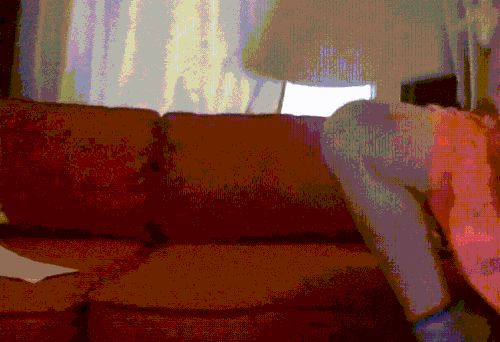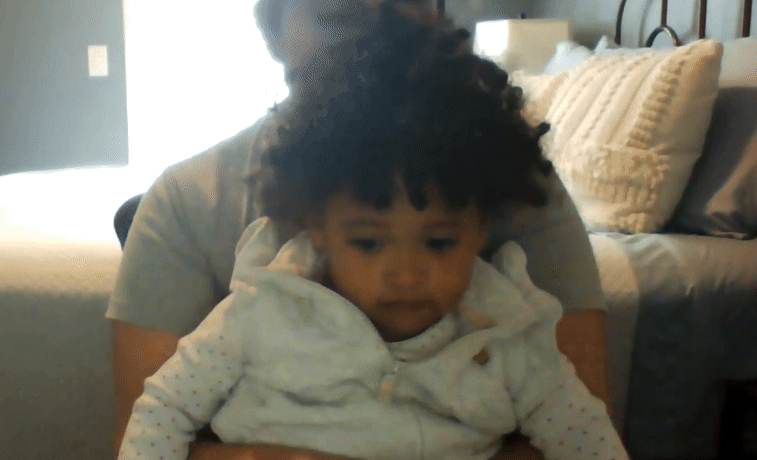We have short and fun studies with infants and young children both online and in-person. Our lab is located on NYU’s campus near Washington Square Park and is open Monday through Friday, 9:00AM - 5:00PM, as well as on most weekends and evenings.
Please see below for all of our active online and in-person studies. We’re frequently adding new studies for 4-month-olds to 6-year-olds, so check back often and send us your contact information using the form above. We’ll get in touch as soon as there’s a study for your child’s age range!
↓ SEE WHAT IT’S LIKE TO PARTICIPATE IN A study… ↓
Online!
In-person!
Current in-person studies from the LDM
Our In-Person studies are currently paused - but keep an eye on this space!
Current online studies from the LDM
Accessible by appointmenT
Follow Me, Friends
14.5-15.5-months
ACCESSIBLE BY APPOINTMENT
This study is conducted through a real-time, interactive video chat with one of our researchers on Zoom. Follow the link below to get in touch with our team about scheduling your appointment!
Duration: 30 minute Zoom session with a researcher
What we’re studying: What expectations do babies have about those who imitate one another?
Eligibility: 14.5-15.5-month-old babies born at ≥37 weeks.
Compensation: A $10 Amazon gift card (redeemable only at Amazon.com).
Check out SoME OF THE FUN FROM OUR RECENT PARTICIPANTS!
Any participant media is published only with the expressed consent of the parent or legal guardian. Photos and videos are never shared without explicit consent from the participating party.
Frequently Asked Questions (FAQ)
If you have other questions, comments, or concerns that are not covered on this page, please do not hesitate to call, email, or send us A Message through our online contact form. We would love to hear from you!
+ WHAT IS IT LIKE TO PARTICIPATE IN A STUDY WITH MY BABY?
Find out all about participating in-person in this video and participating online in this video.
+ WHAT DO BABIES AND CHILDREN DO WHEN THEY PARTICIPATE?
Our in-person and Zoom studies all take the form of one-on-one sessions with researchers and participants via puppet displays, animated vignettes, and simple games. We also have asynchronous studies which you and your child can participate in at any time, without a researcher. All of the sessions are brief and lots of fun! Each study aims to answer a specific question, such as "what shapes do babies find most interesting?" and "what do children's drawings reveal about how they think about objects and spaces?" By observing babies' and children's natural behaviors and actions, we can find out a lot about what they understand and how they learn.
+ Who will conduct the study?
Studies are conducted by our highly trained team of researchers, and you will be able to stay with your child for the duration of the study. Before each study, our researchers will explain all of the details to you and you can ask us any questions at any time. You are also free to stop the study at any time. Our asynchronous studies will also involve a detailed set of instructions before beginning and will have an extended debrief at the end.
+ Does participating benefit us?
Participating in our studies is a fun way to contribute to science with your family! Participating is also a great way to get your child involved in science and mathematics as they begin to, or continue to, learn about these subjects in everyday life and in school. Plus, your child will get a fun new toy or clothing item to bring home with them after your visit!
+ What is this research being used for?
Our research explores the development of all of the rich and complex knowledge that makes us human! Many of our studies focus on the spatial domain, which is the foundation of advanced science and mathematics. If we can learn more about what and how babies and children are thinking about objects, spaces, numbers, and people, especially in everyday situations, then we can tailor educational interventions to what is most intuitive to young minds to encourage learning and growth.
If you'd like to see more about how we are using what we learn in the lab to improve early education, click here to check out this video describing one of our recent studies in collaboration with 2019 Nobel Prize Winner, Dr. Esther Duflo!
+ Do I need an appointment or can I just walk in?
We're thrilled that you would like to come to the lab, and we would be happy to welcome you! We do request that you contact us to make an appointment so we can make the necessary preparations to ensure that your visit goes as smoothly as possible.
If you're unable to make it to the lab in-person, you're welcome to schedule an online Zoom study with a researcher or try out of our asynchronous studies which you can participate in whenever you like! Check out the 'Current Online Studies' section above!
+ What happens after I sign up?
After signing up on our "Participate" page, one of our researchers will reach out to you within three days to tell you more about our research and studies and disucss how to schedule an appointment.
+ How is our information kept confidential?
All of your information is kept in our lab on password protected computers. We do not publish or share identifying information or contact information about children or families. We always ask for explicit and signed consent before using any photos or videos in any publications, presentations, or media. All of our research and confidentiality protocols are approved by the Institutional Review Board for the Use of Human Subjects at New York University.
+ Will we get my child's results or the results of the study?
We are a research lab looking at development in general. So, we are not focused on the performance of individual children, but rather on general patterns that emerge in groups of babies and children who visit the lab. Moreover, our tasks are not standardized or diagnostic in any way.
That said, we are happy to tell you about the motivation and hypothesis for the study your child participates in, discuss with you what your child did, and show you any materials they might have interacted with or produced.
If you are interested seeing any scientific publications about our studies, you can download them for free on our "Publications" page ! For more general-audience friendly descriptions of some published studies, you can visit our Instagram page!
+ I have multiple children; may I also bring them along?
Of course! If there are siblings coming along with your scheduled child, please let us know; we might have a study available for them as well! We also have a play space adjacent to the study rooms with many toys available to accompanying siblings. One of our trained researchers will always be there to supervise any siblings in the play space.
+ Our family speaks a language other than English at home. Can my child participate?
Sure! If it matters for the study whether your child speaks any languages besides English at home, we'll ask specifically. However, most of our studies do not have such restrictions. Please feel free to let us know of any other languages spoken in the household in the comments section of the participation form.
+ My child has been diagnosed with a developmental disorder or has special needs. Can they still participate?
Currently, we do not have any studies available for children who have been diagnosed with a developmental disorder or have special needs. However, if you are interested in ways to get involved with science and research with your child, below are some other labs at NYU that do great research that you might be interested in:
+ How do I get to the lab? Is there free parking nearby?
Our lab is located at 6 Washington Place on New York University's campus (right next to Washington Square Park). Many subway lines connect nearby, and we recommend taking public transportation if possible. There is also metered parking in the area. We do not offer free parking, but we do offer up to $20 in travel reimbursement (please bring a receipt if possible!). There is a map with our location on our "Contact" and "Participate" pages.
+ We do not live in the new york area. Is there any way for us to get involved?
We love your enthusiasm! We run both Zoom and asynchronus studies online through our collaboration with Children Helping Science (Lookit), the online child lab: childrenhelpingscience.com/. Even if one of our studies isn't available, there will be other studies available from other labs.
If you are interested in additional online labs run by some of our colleagues, you can also check out The Child Lab: https://thechildlab.yale.edu/ and the PANDA Online Research Lab: https://www.discoveriesinaction.org.
+ DOES LOOKING AT A SCREEN AFFECT MY CHILD?
Some of our studies, especially those with babies, use animated vignettes presented on a computer or projector screen. These animations allow us to precisely control what information participants are seeing, which is essential to a well-designed scientific study!
That said, scientific control is never more important than the well-being of our participants and so our lab follows screen time best practices. In our lab, we always make sure that the videos we are showing to our participants are appropriate and child friendly. They are also full of fascinating, educationally relevant content that stimulates exploration and curiosity!
There is nothing inherently dangerous about babies' and children's seeing screens. Rather, the effects of screen time depend on the context and content of the screen time. Here are some details from a recent WHO report (click on the linked text to learn more):
- There are different types of screen time. While some of them, such as certain television programs or social media, might have a negative impact on young children’s development, educational and engaging screen time can be beneficial.
- Engaging in video calls or introducing children to educational activities on screen can have a positive impact on cognitive development.
- Research also shows that the effect of television can be also different depending on the viewed content, as shown in this large research study.
- Finally, harmful effects of screen time were found only for very high levels of viewing.
FURTHER READING:
If you are interested in reading more about screen time and cognitive development, you can check out Jordan Shapiro’s new book “The New Childhood: Raising Kids to Thrive in a Connected World” or this research article on managing screen media experiences for toddlers and preschoolers. You can also look at the screen time resources at ZERO TO THREE.
Email
labdevelopingmind@nyu.edu
Phone
212.998.7917
Lab for the Developing Mind
6 Washington Place, 3rd floor
New York, NY 10003
Families interested in learning more about other developmental studies being offered at New York University can sign up through Baby & Child @ NYU.








